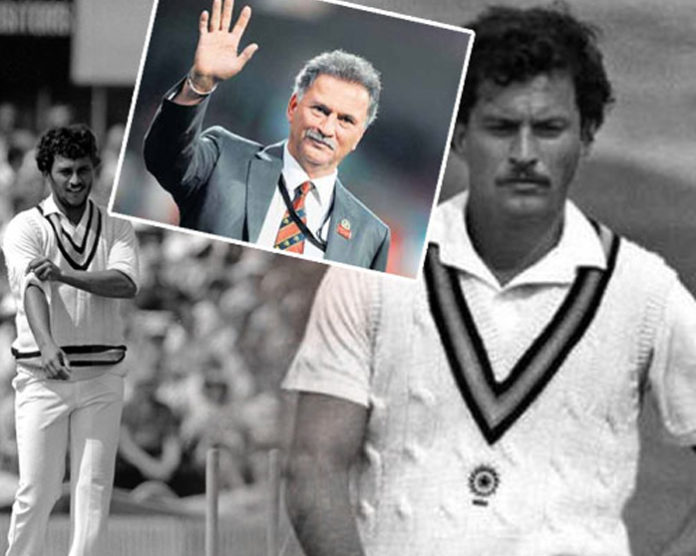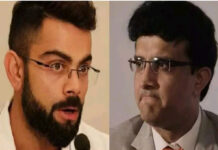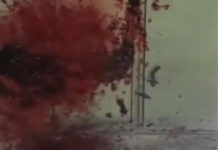 Roger Binny was a popular cricket all-rounder who is especially remembered for his outstanding bowling performance in the 1983 cricket World Cup, which India won against the West Indies. Binny was a right-handed batsman and a right-arm medium bowler. Binny was the highest wicket taker in the 1983 World Cup, taking 18 wickets in all. He repeated this exemplary performance in the 1985 World Series Cricket Championship in Australia by taking 17 wickets.
Roger Binny was a popular cricket all-rounder who is especially remembered for his outstanding bowling performance in the 1983 cricket World Cup, which India won against the West Indies. Binny was a right-handed batsman and a right-arm medium bowler. Binny was the highest wicket taker in the 1983 World Cup, taking 18 wickets in all. He repeated this exemplary performance in the 1985 World Series Cricket Championship in Australia by taking 17 wickets.
Roger Binny began his international test career in his home town Bangalore at the KSCA Stadium. Binny made his test debut in November 1979 against Pakistan and his One Day International debut in 1980 against Australia. In his test debut in 1979 against Pakistan, he confidently faced bowlers like Imran Khan and Sarfraz Nawaz. Binny performed extremely well and scored 46 runs. Binny continued to contribute to the Indian team as a commendable swing bowler and was an excellent fielder as well.
It was the dawn of a new era in Indian cricket. The previous season, the Indian team, on a tour of Pakistan, had been crushed by their north western neighbours. The tour had heralded the end of the famous spin quartet of India. Erapalli Prasanna never payed again for India, while Bhagwat Chandrasekhar and Bishen Bedi didn’t last much longer.
 Instead, following the success of Kapil Dev, India pushed to have similar seam bowling all-rounders in the team. The first of many such exponents was Roger Binny. While he did not set the ground on fire in his debut series, he played a few useful knocks while picking up wickets at important junctures.
Instead, following the success of Kapil Dev, India pushed to have similar seam bowling all-rounders in the team. The first of many such exponents was Roger Binny. While he did not set the ground on fire in his debut series, he played a few useful knocks while picking up wickets at important junctures.
Over time Binny established himself as a genuine all-rounder. He proved himself to be an accomplished seam bowler. While batting, he was usually able to keep one end together, while he was certainly one of the better fielders in the side.
World Cup 1983
Binny will forever be remembered for his role in India’s victory in the 1983 World Cup. Starting as no hopers, India managed a surprise victory over reigning champions, West Indies, in their opening match.
After some ups and downs India overcame hosts, England, in the semi-final. They then shocked the world by successfully defending a meagre total of 183 in the final against the mighty West Indies.

Captain Kapil Dev was rightly celebrated as a hero, as was final and semi-final man of the match, Mohinder Amarnath. What was lost amid all the hullabaloo was the fact that Binny had finished as the highest wicket taker in the tournament.
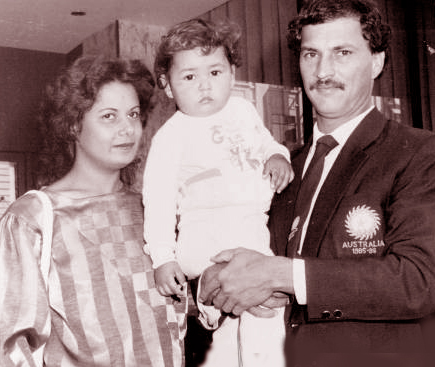
He had as many as 18 scalps in 8 matches. He played his part in the final, with a tidy spell of 1 for 23 in 10 overs. His performances included a man of the match against Australia in India’s must win final group stage match, in which he had claimed 4 for 29 apart from scoring 21 valuable runs. India won comfortably by 118 runs.
He carried his limited overs form into the 1985 Benson and Hedges Cup. Here he took 9 wickets in 4 matches taking ill on the eve of the final. Nevertheless, India beat Pakistan to claim their second major limited overs trophy.
Notable performances
He bowled India to victory with a 7 wicket match haul against England at Headingley. This included a 5 for 40 in the first innings. His best bowling performance was against Pakistan in 1987 when he took 6 for 56 to bowl Pakistan out for 229. These were his only 5 wicket hauls in Test cricket.
He seemed to reserve his best performances for Pakistan. His highest test match score was also achieved against India’s eternal rivals. It was 1983, India were 6 down for 85 in the first innings of the first test in Bangalore.
Binny came together with another of his ilk, Madan Lal. The two stitched together a 155 run partnership for the 7th wicket, before the latter was dismissed for 74. Binny remained unbeaten on 83. That was the closest he got to a test century, although he had 14 in first class cricket.

| Mat | Inns | NO | Runs | HS | Ave | BF | SR | 100 | 50 | 6s | Ct | St | |
|---|---|---|---|---|---|---|---|---|---|---|---|---|---|
| Tests | 27 | 41 | 5 | 830 | 83* | 23.05 | 0 | 5 | 5 | 11 | 0 | ||
| ODIs | 72 | 49 | 10 | 629 | 57 | 16.12 | 1046 | 60.13 | 0 | 1 | 12 | 0 | |
| First-class | 136 | 215 | 22 | 6579 | 211* | 34.08 | 14 | 33 | 91 | 0 | |||
| List A | 113 | 87 | 14 | 1038 | 69 | 14.21 | 0 | 5 | 25 | 0 |
| Mat | Inns | Balls | Runs | Wkts | BBI | BBM | Ave | Econ | SR | 4w | 5w | 10 | |
|---|---|---|---|---|---|---|---|---|---|---|---|---|---|
| Tests | 27 | 38 | 2870 | 1534 | 47 | 6/56 | 8/101 | 32.63 | 3.20 | 61.0 | 0 | 2 | 0 |
| ODIs | 72 | 67 | 2957 | 2260 | 77 | 4/29 | 4/29 | 29.35 | 4.58 | 38.4 | 3 | 0 | 0 |
| First-class | 136 | 13695 | 7386 | 205 | 8/22 | 36.02 | 3.23 | 66.8 | 5 | 0 | |||
| List A | 113 | 5023 | 3769 | 122 | 4/29 | 4/29 | 30.89 | 4.50 | 41.1 | 3 | 0 | 0 |
| Test debut | India v Pakistan at Bengaluru, Nov 21-26, 1979 scorecard |
| Last Test | India v Pakistan at Bengaluru, Mar 13-17, 1987 scorecard |
| Test statistics | – Statsguru Test analysis – Player analysis menu/filter Test match list ——————————— Batting career summary Batting innings list High scores Batting series averages ——————————— Bowling career summary Bowling innings list Bowling match list Best innings bowling Best match bowling Bowling series averages ——————————— Fielding career summary Fielding innings list Most catches in an innings Fielding series statistics |
| ODI debut | Australia v India at Melbourne, Dec 6, 1980 scorecard |
| Last ODI | India v Australia at Chennai, Oct 9, 1987 scorecard |
| ODI statistics | – Statsguru ODI analysis – Player analysis menu/filter ODI match list ——————————— Batting career summary Batting innings list High scores Batting series averages ——————————— Bowling career summary Bowling innings list Best innings bowling Bowling series averages ——————————— Fielding career summary Fielding innings list Most catches in an innings Fielding series statistics |
| First-class span | 1975/76 – 1991/92 |
| List A span | 1975/76 – 1986 |
A versatile allrounder, Roger Binny proved his value to the Indian team in both Test cricket and the one-day game. He was capable of rescuing India, like he did while scoring 83 not out and sharing a record 155 run seventh-wicket partnership with Madan Lal against Pakistan at Bangalore in 1983. He was capable of bowling India to victory, as he did in taking seven wickets in the match at Headingley in 1986. Or when with a spell of 4 for 9 in 30 balls towards his best Test figures of 6 for 56, he pushed Pakistan to the wall at Calcutta in 1987. But there is no doubt that Binny’s most outstanding feats were associated with limited overs cricket – and more specifically the 1983 World Cup. He played a leading role in India’s victorious campaign taking 18 wickets, then the record in the competition.
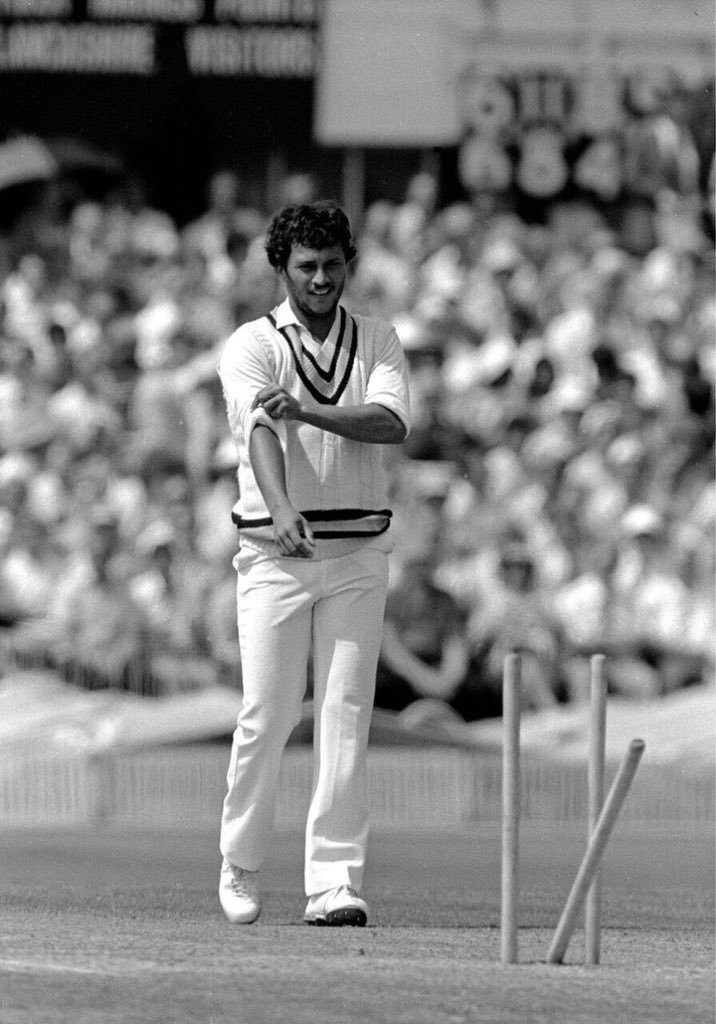 Tall and athletically built, Binny was an aggressive batsman who could either open the innings or go in the middle order, was a medium-pace bowler who could swing the ball both ways – and was particularly effective in English conditions – and an excellent field. He first made his mark when putting on a record unbroken partnership of 451 runs for the first wicket with Sanjay Desai in the Ranji Trophy game against Kerala in 1977-78, his share being 211. He was generally in and out of the Indian team but whenever he was persevered with, he proved his value. With the ball, he was capable of destructive spells like when he dismissed Majid Khan, Zaheer Abbas and Miandad at Bombay in 1979 to put Pakistan on the backfoot or when he dismissed Greenidge, Haynes and Richards to rock the West Indies at Ahmedabad in 1983. A Karnataka stalwart for several years, Binny later made his mark as a coach and was given a lot of credit for the victory of the Under-19 team in the World Cup in Sri Lanka in January 2000. He was made Bengal coach in 2007, and was part of the Karnataka State Cricket Association management when appointed national selector in September 2012.
Tall and athletically built, Binny was an aggressive batsman who could either open the innings or go in the middle order, was a medium-pace bowler who could swing the ball both ways – and was particularly effective in English conditions – and an excellent field. He first made his mark when putting on a record unbroken partnership of 451 runs for the first wicket with Sanjay Desai in the Ranji Trophy game against Kerala in 1977-78, his share being 211. He was generally in and out of the Indian team but whenever he was persevered with, he proved his value. With the ball, he was capable of destructive spells like when he dismissed Majid Khan, Zaheer Abbas and Miandad at Bombay in 1979 to put Pakistan on the backfoot or when he dismissed Greenidge, Haynes and Richards to rock the West Indies at Ahmedabad in 1983. A Karnataka stalwart for several years, Binny later made his mark as a coach and was given a lot of credit for the victory of the Under-19 team in the World Cup in Sri Lanka in January 2000. He was made Bengal coach in 2007, and was part of the Karnataka State Cricket Association management when appointed national selector in September 2012.
After retirement
Binny tried his hand at coaching after retirement. He earned plaudits by leading the U 19 Indian team to World Cup victory in 2000. The team included future internationals, Yuvraj Singh and Mohammad Kaif. He was appointed coach of the west Bengal team in 2007 but parted ways after a season.
Binny became a national team selector in 2012. His role was brought into the spotlight in 2014 when his son, Stuart, got selected. The next 2 years Binny faced a lot of criticism for his apparent nepotism and favouritism of his son.

The truth, as in most of such cases, is different. Binny recused himself from selection whenever his son’s name came up for discussion. This is mandatory according to BCCI’s policy. Unfortunately, BCCI’s policy of doggedly refusing to communicate details means that Binny could never come out in the open and clear his name.
However, Binny will always be known to have delivered yeoman service to the game to informed cricket fans and followers. As a cricketer, coach and selector he has always given his all and conducted himself in a dignified manner.
Thesportsrush wishes Roger Binny a happy birthday and wishes him well in his future endeavours.































